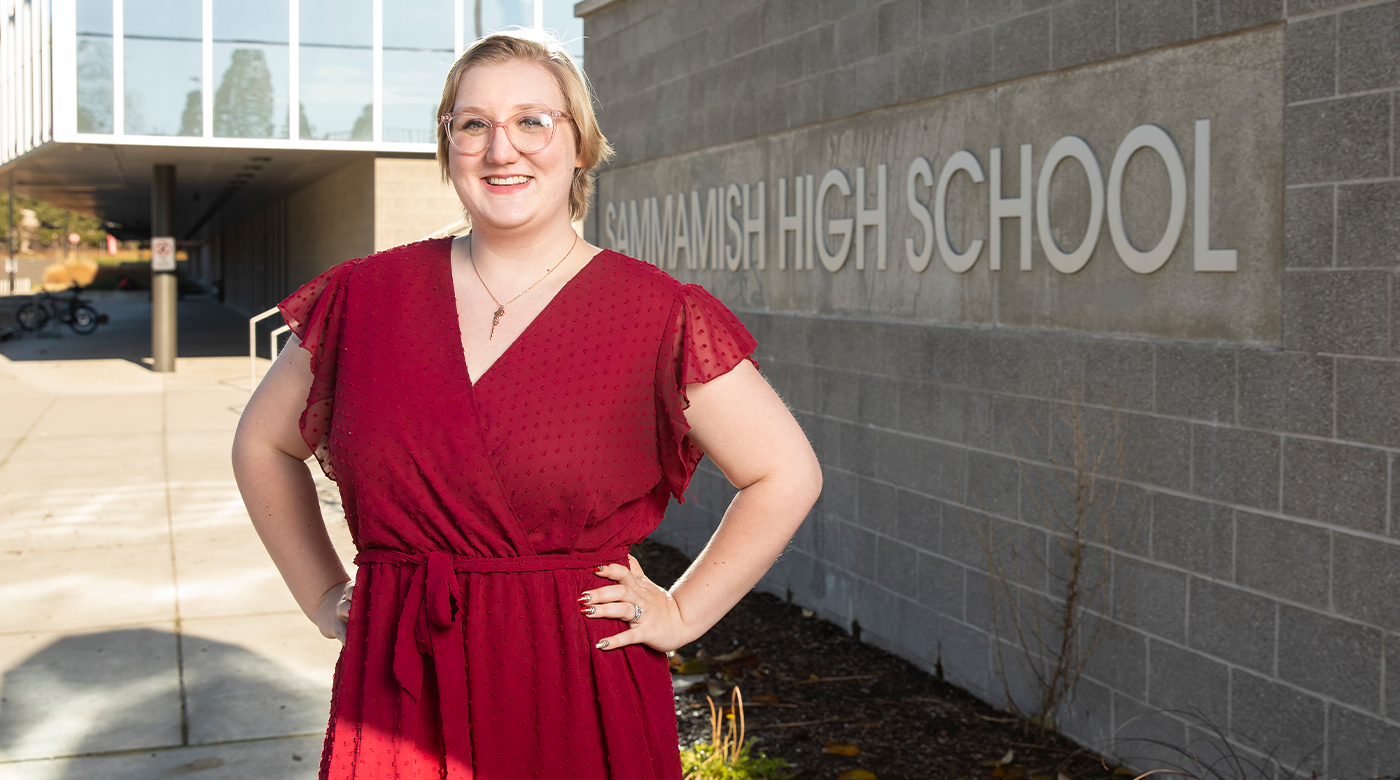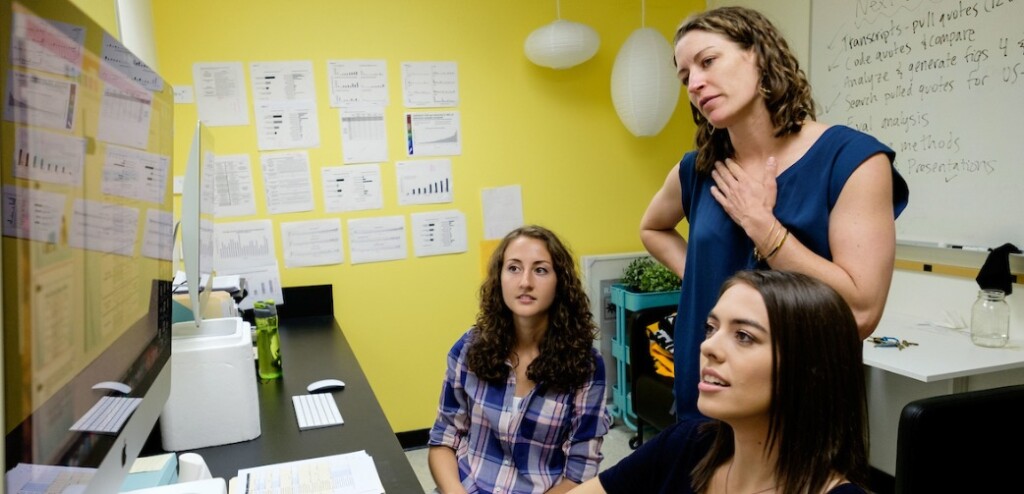PLU’s culturally sustaining STEM program helped prepare Becca Anderson to be a dynamic teacher

Image: PLU alumna Becca Anderson ‘19, ‘22 (PLU Photo/Sy Bean)
By Lisa Patterson ‘98
PLU Marketing & Communications Guest Writer
PLU alumna Becca Anderson ‘19, ‘22 is in her first year teaching biology to ninth graders at Sammamish High School in Bellevue. Her classroom consists of a diverse population of students — something her recent completion of the Culturally Sustaining STEM Teacher Program at Pacific Lutheran University helped prepare her for.
Funded by a $1.2 million grant from the National Science Foundation, PLU’s Culturally Sustaining STEM Teacher Program provides funding for students earning their Master of Education (MAE) at PLU that plan to teach STEM (science, technology, engineering, and math) subjects at the middle or high school level. Scholarship recipients — like Anderson — attend monthly meetings to learn about equity in education and culturally sustaining classroom practices. The program aims to prepare teachers for effectively instructing diverse populations. Teachers commit to teaching science or math in middle or high school in a high-need Title 1 school for two years after earning their degree.
Anderson said the program has been — and continues to be — invaluable. She is connecting with her students with open eyes and an open heart. Her gratitude is palpable and her excitement for the job is immeasurable.
“I knew that coming into the (MAE) program that anti-racist practices and equity-focused practices were something I needed to work on,” Anderson said. “I’m a white cisgender female teacher and I know I have implicit biases because of my background and because of how I grew up.”
PLU professors Wendy Gardiner, Ksenija Simic-Muller and Andrea Munro were co-collaborators on landing the NSF grant in 2020.
“This program reflects PLU’s values of diversity, justice, and sustainability,” Gardiner said. “The program also reflects commitments to collaboration and leveraging collective expertise through the ongoing work between the Colleges of Professional Studies (education) and Natural Sciences (chemistry and mathematics).”
In 2021-22, Gardiner said that seven students were recruited to the NSF-funded Pathways to Culturally Sustaining STEM Teaching Program and awarded roughly $140,000 in forgivable loans.
Anderson feels like the program’s anti-racist, equity-focused, and student-focused instruction is essential. She hopes these conversations become the norm in classes beyond her program and she’s proud that PLU is leading the way, and that she is part of it.
“This program really prepares teachers to walk in on their first day prepared to be a part of those conversations,” she said. She joined Sammamish High School’s Racial Equity Inclusion Team and also participates with the Student Wellbeing Team. She said the program instilled a lot of self-awareness. For example, she realized several students have trouble learning because they are hungry. She keeps a box of healthy snacks, like granola bars, so hunger is not a barrier.
“That awareness piece is something that’s also really touched on in the program,” she said. “It all starts with getting to know your kids as people first and then addressing the learner side … if you can’t address the people side of them, they’re never going to trust you with the learner side of them.”



